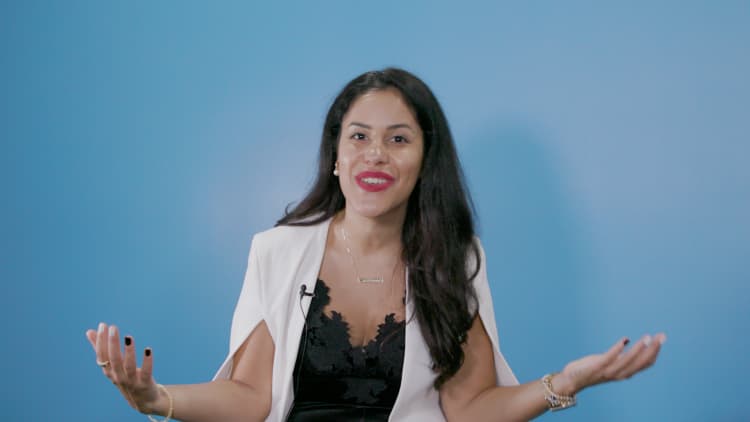In preparing for a job interview, you'll likely go over your resume to make sure you have your talking points, review the role criteria so you know what the employer is looking for, and do a bit of research about the company so you come in having a sense of its culture.
More from Grow:
Why a 2-page resume isn’t just OK, it may even be better
Recruiters spend less than 10 seconds on resumes: What they’re looking for
Don’t make this mistake during a job interview: Career expert
You'll also want to prepare for any questions interviewers are likely to ask you. "What are your strengths?" is "definitely up there in the top interview questions that are asked," says Vicki Salemi, career expert at Monster, so you'll want to have some good answers prepared for when it comes up.
'Highlight your strengths to match' what the company's looking for
When considering which strengths to focus on in an interview, "align that with what the role focuses on," says Angelina Darrisaw, a career coach and founder and CEO of C-Suite Coach.
Before the interview, "it's a good idea to always copy and paste the job description" into a Google document, the Notes app in your phone, or "whatever makes sense for your organizational skills," says Salemi, "because you want to refer to that prior to the interview." That's your blueprint for what the company's looking for.
Pick "one of the top three bullets in the job description" and in your answer, "highlight your strengths to match that," she says. Be honest, and choose a bullet point that's relevant to what your actual strengths are. Matching your abilities to what the company wants most can help show that you're right for the role.
'Back it up with some specific example'
When you highlight your strengths, give specific examples that illustrate you've really leaned into and benefitted from them.
"You can sell that you're great at anything, but unless you can back it up with some specific example, some case studies, some anecdote from your work history," says Amanda Augustine, career expert at TopResume, "there's nothing really concrete to help bolster that argument."

Video by Courtney Stith
To showcase your strengths, consider using the STAR interview response method, which stands for situation, task, action, results. It helps outline "succinct stories that you can tell to demonstrate certain competencies," says Augustine.
Say, for example, that you're trying to prove your strength in sales. If the "situation" was that your company had a goal of making 20 sales on a given month, the "task" would be whatever your individual monthly goal on the team was, the "action" would be whatever you did to ensure you made your personal quota, and the "results" would be that you met your goal and helped the team succeed.
If your strengths lie in soft skills, 'you want to be bringing that up'
With so many positions either going hybrid or fully remote, skills such as communication have become increasingly important for employers.
"Soft skills are not something that everyone has," says Darrisaw, "so if that is a strength that you have, you want to be bringing that up and showing real examples of how your soft skills help you better contribute to your roles."
Darrisaw gives the examples of techniques you might use to give feedback, assessments you've taken to understand your work or leadership styles, and ways you've developed to better collaborate with others. "These are great examples of the types of things that you want to highlight because this goes above and beyond your product or your service expertise," she says.
Find 'an opportunity to incorporate your strengths' even if they don't ask
It's possible the question of strengths will not come up in an interview directly. "If they don't ask you what your strengths are, they're going to ask you, 'Why should we hire you?' 'Why do you think you're a good fit for this role?' 'Why does this role interest you?'" says Augustine. "All of those types of questions give you an opportunity to incorporate your strengths" into your answers.
Even if they don't flat out ask, she adds, "you should always have some talking points prepared for any interview as to, 'This is what you're looking for, this is why I'm a good fit, these are how I can leverage my strengths.'"
The article "How to Answer 'What Are Your Strengths?' in a Job Interview" originally published on Grow (CNBC + Acorns).

Video by Courtney Stith
Sign up now: Get smarter about your money and career with our weekly newsletter


